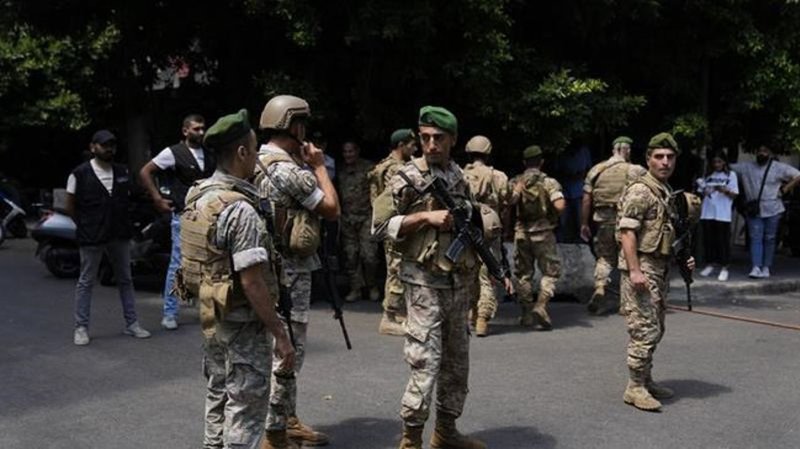
Armed man demanding savings holds Beirut bank staff hostage
BEIRUT (AP) — A Lebanese man armed with a shotgun broke into a Beirut bank on Thursday, holding employees hostage and threatening to set himself ablaze with gasoline unless he receives his trapped savings, a security official said.
The man, who entered a branch of the Federal Bank in Beirut’s bustling Hamra district, was carrying a canister of gasoline and held six or seven bank employees hostage, said the official, who spoke on condition of anonymity in line with regulations.
The man also fired three warning shots, the official said. Local media reported that he has about $200,000 stuck in the bank.
Lebanon’s cash-strapped banks since late 2019 have implemented strict withdrawal limits on foreign currency assets, effectively evaporating the savings of many Lebanese. The country today is suffering from the worst economic crisis in its modern history, where three-quarters of the population have plunged into poverty, and the value of the Lebanese pound has declined by over 90% against the U.S. dollar.


